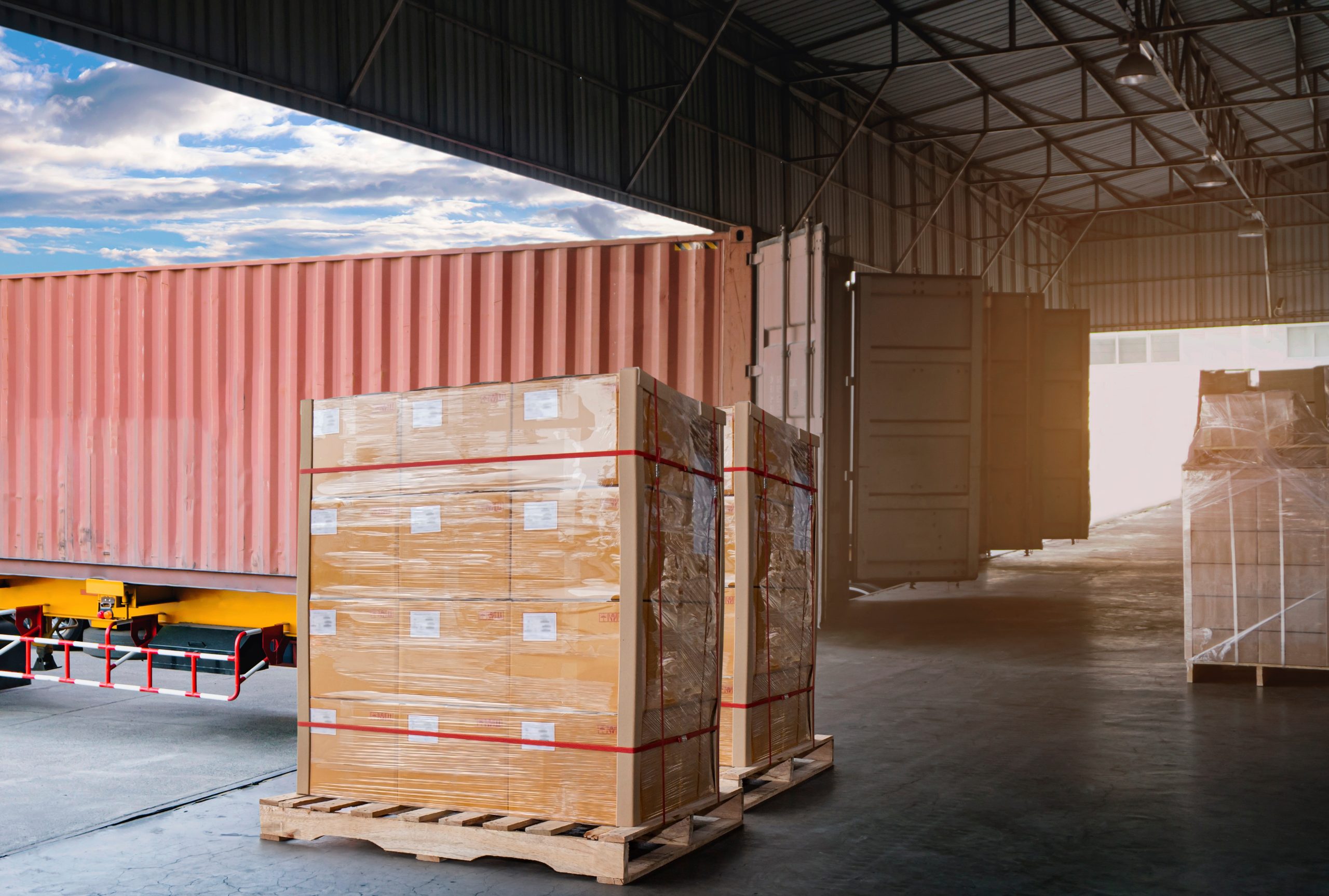The Essential Guide to Shipping to Nigeria – What You Need to Know
The Essential Guide to Shipping to Nigeria – What You Need to Know
With the world changing faster than ever before, global shipping has become a key part of many businesses. Nigeria is one of the most important countries when it comes to global shipping, and it can be a tricky task to understand exactly what you need to know when shipping there. This essential guide aims to make the process a lot easier for you by providing you with the necessary information and knowledge to ensure your shipments to Nigeria are successful. We will discuss everything from the best carriers and service levels, to the relevant documentation and customs regulations. With this guide, you can be assured you will have all the necessary information to ensure a smooth and successful shipping experience to Nigeria.
Overview of Shipping to Nigeria
Nigeria is a large, populous country in Africa, and it is the 7th largest economy in Africa. It is also the largest economy in the African continent that is not a member of the BRICS nations. The Nigerian economy has a large and diverse mix of people, and it is the most populous African nation. There are many people of different ethnicities, and the official language is English. Nigeria is a very important trading nation, and it has a large ocean coastline that offers great shipping opportunities. The country has a very large amount of shipping traffic and has been a leader in using its ocean ports for many years. It is estimated that about 95% of the goods that are imported and exported in Nigeria are shipped via the ocean. Nigeria is a very important trading partner for many nations, especially the United States. The huge demand and growth in the economies of many African nations has led to increased shipping to and from these nations, and Nigeria is one of the countries leading the way.
Best Carriers and Service Levels
Many carriers offer excellent shipping to Nigeria, but the top 5 carriers are Maersk Line, MSC, CMA CGM, Höegh Autoliner and COSCO. Of course, it is important to note that while some carriers are better than others, it is always a good idea to speak to your shipping provider and find out what specific services they offer in your particular situation. Even the best carriers might not be the best for your particular shipment, so it is important to find out what services are available and how they can help your situation. As for best service levels, you should always find out the details about the service levels offered by each carrier before choosing one for your shipment. This will allow you to find one that meets your needs and requirements. If you are unsure what to look for when choosing a carrier, you should always speak to your shipping broker or contact the shipping company directly. They will be able to help you with the details of the service levels and which one will be best for your particular shipment.
Necessary Documentation
While the documentation requirements may vary from carrier to carrier, there are some basic documents that are required by all carriers. There are also different types of documentation depending on the type of shipment. The general documentation requirements for a sea shipment to Nigeria are as follows: – Bill of lading: The B/L is a document issued by the shipping company that confirms the details of the shipment and the contract between the two parties. The B/L is a negotiable document, meaning it can be transferred from one party to the other. This document is most commonly used for identifying the shipper, consignee, quantity, etc. – Commercial Invoice: This is a commercial document that is used to detail the goods being shipped along with the price. This is primarily used to ensure that taxes, duties, etc. are paid on the goods as they are being shipped. – Health certificate: This document is issued by a recognized government agency and details the condition of the plants or animals that are being shipped. This is important to ensure the safety of both the people and the goods being shipped. – Declaration of Origin: This document is used to detail the source of the goods being shipped. This is important for many reasons, but it is usually required for goods that are being imported from a different country.
Customs Regulations
Nigeria has very strict customs laws, so it is important to know exactly what you can and cannot ship to the country. The following is a list of items that are prohibited from being shipped to the country: – Plants: This includes cut flowers, potted plants, and any other plant. It is important to find out specifically what plant species are prohibited before attempting to ship them. – Animals: This includes both live and dead animals. This also includes skeletons, skins, feathers, and any other part of an animal. – Explosives and weapons: This includes guns, ammunition, and any other weapon. It also includes fireworks, explosives, and anything with an explosive component. – Human remains: This includes both remains of people and any other part of the human body. This includes things like organs, bones, and blood samples. Human remains can be shipped to Nigeria but must be handled by an authorized and licensed company. – Radioactive materials: This includes any radioactive materials, equipment, and samples. It is important to find out which materials are prohibited before attempting to ship them.
Restrictions and Prohibited Items
As mentioned above, there are many restrictions when it comes to shipping to Nigeria, and it is important to be aware of all of them. The following is a list of items that are not allowed to be shipped to Nigeria: – Any item that is considered harmful to the environment. This includes things like pesticides, insecticides, and other harmful chemicals. – Anything that is considered a health risk. This includes any food or other product that may contain pathogens or harmful bacteria. – Anything that is considered a religious or cultural item. This includes things like bones, skins, feathers, and any other item that is related to a religion or culture. – Any item that is considered a national security threat. This includes things like guns, ammunition, fireworks, and other items that may threaten the security of the nation.
Insurance and Liability
When shipping to Nigeria, it is very important that you have an insurance policy in place. There are many insurance companies that offer shipping insurance to Nigeria, but it is important to find one that is reliable and trustworthy. When choosing an insurance policy, there are a few things you should keep in mind: – Find out what is covered. This includes what type of shipment is covered, what is not covered, and what type of losses are covered. – Find out what the limit of coverage is. This will help you know how much you will be covered for in case of a loss. – Find out how long the coverage lasts. This will help you know how long you will be covered for in case of a loss. – Find out how to file a claim. This is important so that you know what you need to do if there is a loss.
Packaging and Labelling
When it comes to packaging, you should always follow the guidelines of the shipping company that you are using. If you are not sure what type of packaging to use, you can always contact them and ask for their recommendations. When packaging your shipment, make sure that you are following the regulations set by the customs department in Nigeria. The best way to ensure that you are following these regulations is to find out what they are before beginning to package. The best way to do this is to talk to the customs department directly. This can be done either in person or over the phone. Once you know what the regulations are, it is important to make sure that they are clearly labelled. Labelling is very important because it allows the customs department to know what is in the shipment. It is important to note that the labels should be large enough so that they can be read easily. It is also important that they are placed in an easily accessible place so they can be quickly read by the customs officials.
Tracking and Delivery
When shipping to Nigeria, it is very important to track your shipment. The best way to do this is to use the tracking feature offered by the shipping company. It is important to note that tracking is not available for all shipping companies, so it is important to find out if this service is offered by the shipping company you are using. It is also important to double check that the tracking works properly and that you are able to track the shipment without any issues. It is also a good idea to keep in contact with the shipper to find out the status of the shipment. This is important because the shipping company will be able to give you more information about the status of the shipment.
Common Mistakes to Avoid
It is








LEAVE A COMMENT
You must be logged in to post a comment.